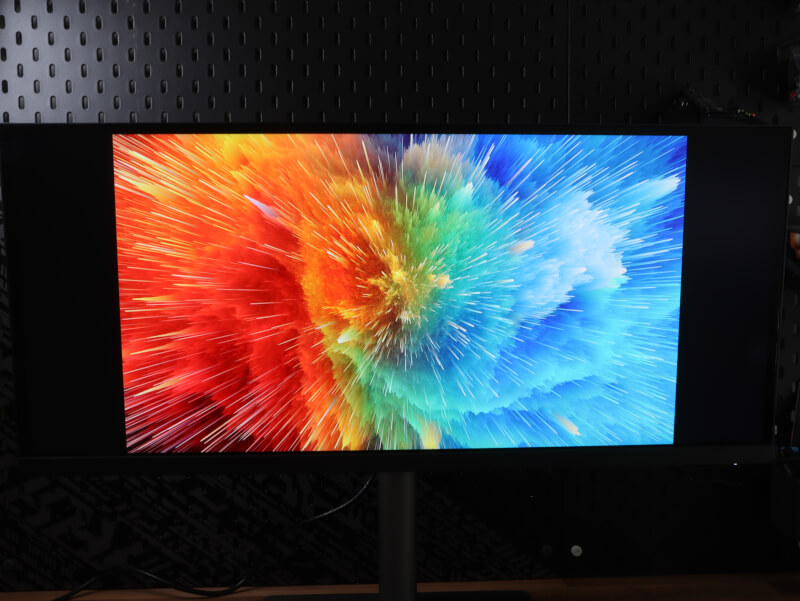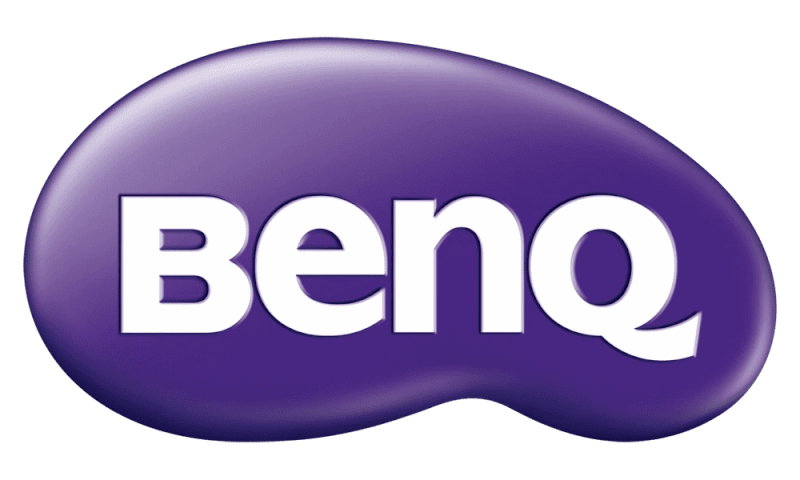BENQ PD3420Q

Before we move on with the PD3420Q from BENQ, I've stopped by their website to find out some specifications.
Specifications and features BENQ PD3420Q
- Size: 34”
- Panel: IPS
- Native Resolution: 3440 x 1440
- Refresh Rate: 60Hz
- Response Time: 5ms MPRT
- Color Gamut: 98% (DCI-P3), 100% (sRGB)
- Peak brightness: 350 nits
- Peak brightness HDR: 400 nits
- Contrast ratio: 1000:1 (Native)
- Contrast ratio HDR: -
- Display colors: 10-bit RGB
- Inputs: 2x HDMI 2.0, 1x Displayport 1.4, 3x USB 3.1, 1x USB-C DP Alt Mode, 1x USB-C
- Adaptive Sync: -
About the BENQ PD3420Q
Before we dive further into the screen, we first take a look at the accessories that come with it. We have the necessary cables to get started. With both HDMI and Displayport cable. Next to that we also have USB Type-C cable, power cable and some manuals, as well as paper on calibrating the screen.
The screen is divided into three parts, where the foot consists of two. The lower part of the foot has a good width, with a good weight from aluminum. The tower is attached to the foot with one fixed screw, which sits on the foot. The last part is the assembly itself to be able to attach the screen.
On the back we have 4 buttons which help to control the screen. Both to be able to turn the screen on and off. Also access the OSC menu. The other buttons are shortcuts to be able to access some settings directly in the screen.
At the bottom we find the outputs, DC in for the power cable, two HDMI, one Displayport, USB-C, input for the OSC controller and two USB-A. In the side of the frame, there is an additional USB-A and USB-C input.
The test
We have now finished walking around the screen, and it is time for the test itself. Therefore, of course, it has ended up on the desktop and is used as my daily screen at the computer.
During the test, I made use of the PC, where it was used both for gaming, general web surfing and, of course, media streaming. The sound in the screen feels very standard, and offers neither superior nor boring sound. It works fine, for ordinary things on the computer, whether it's a bit of background music, or for a YouTube video.
If we look further with the image itself and the colors, I have started by connecting it to a Windows machine, based on that that is where I usually test with. Both with SDR and HDR, it achieves beautiful colors.
Subsequently, I also tried to connect it to a Macbook, and ran the same video. Here I experienced a certain color nuance, which can also be seen in the picture, the ice cubes became more green than blue.
BENQ states that the screen has 5ms, where of course I have been inside and run a browser test, which comes with a result of 15.3ms. Fortunately, it is a screen that is aimed at the designer, rather than the gamer, which also makes it not a critical result.
The PD3420Q uses 10-bit, along with HDR400, where it only has 8-bit at SDR settings. The colors are really nice and the screen manages to create a nice picture, especially with HDR activated. Like many other screens, HDR400 is perhaps more of a certification that has become a little too easy for screens to achieve. Because it is not because it provides a lot of brightness, which strengthens the image more than other screens. Of course, we don't have the equipment to test for, but I've had other screens inside that had better brightness in HDR.
Price
I have been able to find a price for the PD3420Q from BENQ which is 900$.
 If you want to find more information about the PD3420Q from BENQ, you can click on the banner above.
If you want to find more information about the PD3420Q from BENQ, you can click on the banner above.
Conclusion
The time has come to end the test on the PD3420Q from BENQ. BENQ undoubtedly makes screens with good colors. The PD3420Q also proves to be part of that equation. Because the colors live up to what we have previously seen at BENQ, but when it comes to the connection to a Macbook, the colors ended up being slightly different, compared to how I personally think the image should have looked. This is despite BENQ itself coming up with an explanation as to whether the screen is prepared for Apple, and would give them the best image.
Like many other monitors, the PD3420Q also comes with the necessary connections, and especially when we are talking designer/office monitor. Among other things, it is possible to connect a laptop directly to the screen, and be able to draw power without having a power cable directly to the computer.
The design itself is very neutral, but is also very large and clumsy, where I can wonder about the actual thickness of the screen.
Finally we come to the price, where 5895 kroner is a price that I would consider to be a bit high compared to other screens of this type. Especially when I can't see what extra features the screen can come with than other screens.
I end the test by giving the PD3420Q a score of 7 out of 10. The thoughts behind the screen are incredibly good, especially for those whose requirements are different from just gaming and where the colors are in focus. But unfortunately I found that the test on Mac did not quite live up to my expectations out of the box.
Pros
- Incredibly beautiful colors
- Neutral design
- USB-C
Cons
- Price
- The colors for Mac, feel off.
- Big
Score: 7

Latest monitor
-
24 Marmonitor
-
24 Janmonitor
ZOWIE XL2586X+ 600Hz Gaming Monitor
-
30 Octmonitor
ASUS ROG Swift PG32UCDP
-
22 Augmonitor
New ASUS ROG monitors at Gamescom
-
15 Julmonitor
ASUS ROG Strix OLED XG27AQDMG
-
04 Julmonitor
MNN Portable Monitor
-
05 Junmonitor
Samsung ready with smaller Odyssey screens
-
10 Maymonitor
AORUS FO32U2P - 4K OLED Gaming
Most read monitor
Latest monitor
-
24 Marmonitor
ASRock PGO32UFS
-
24 Janmonitor
ZOWIE XL2586X+ 600Hz Gaming Monitor
-
30 Octmonitor
ASUS ROG Swift PG32UCDP
-
22 Augmonitor
New ASUS ROG monitors at Gamescom
-
15 Julmonitor
ASUS ROG Strix OLED XG27AQDMG
-
04 Julmonitor
MNN Portable Monitor
-
05 Junmonitor
Samsung ready with smaller Odyssey screens
-
10 Maymonitor
AORUS FO32U2P - 4K OLED Gaming






